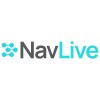Full Stack Developer Opportunity
navlive company
Full Stack Developer in UNITED KINGDOM
Visa sponsorship
& Relocation
& Remote
1 year ago
Report
NavLive is a newly formed spin-out from the University of Oxford and is backed by award-winning technology and algorithms. We are developing real-time spatial AI solutions for the construction and geospatial industries.
We use real-time multi-sensor fusion and high-precision positioning technology to build 3D models of indoor and outdoor environments. Our tech can infer changes in in-situ and provide data to facility or site decision-makers. We want to recruit a full stack developer to help us develop and improve our 3D mapping technology - working with lidar and computer vision sensing to produce more accurate and immersive reconstructions.
Are you interested in joining a rapidly growing start-up to develop advanced technology which will revolutionise how companies monitor their assets, make decisions and measure the real world?
Tasks
Your role as a Full Stack Developer will involve:
Key requirements for this role:
For the successful candidate, we can offer:
While this role will require some on-site and in-person time, much of what we do is structured for remote work. We most highly value excellent work done rather than an on-site work environment.
This role assumes a typical 37.5 working week centred around a set of core working hours but we can offer extra flexibility for candidates with specific constraints.
Diversity and Inclusion
Our company thrives on diverse inputs from people of different backgrounds, skillset and points of view. We embrace individuality and aim to offer the flexibility demanded by the modern digital workforce.
We use real-time multi-sensor fusion and high-precision positioning technology to build 3D models of indoor and outdoor environments. Our tech can infer changes in in-situ and provide data to facility or site decision-makers. We want to recruit a full stack developer to help us develop and improve our 3D mapping technology - working with lidar and computer vision sensing to produce more accurate and immersive reconstructions.
Are you interested in joining a rapidly growing start-up to develop advanced technology which will revolutionise how companies monitor their assets, make decisions and measure the real world?
Tasks
Your role as a Full Stack Developer will involve:
- Creating front-end user interfaces for both web and mobile, and optimising the user journey.
- Writing software in C++ and Python to improve our core algorithms and data pipelines. This will involve both front-end and back-end contributions. The ideal candidate will have experience with common UI frameworks and 3D visualisation tools.
- Working with hardware platforms to deploy our solutions in the field. These platforms include mobile robots and handheld devices.
- Developing documentation and unit tests to support the maintenance and development of our professional software code base.
- Understanding how our core positioning and mapping technology (known as SLAM) works in different scenarios and with different sensor combinations.
- Providing your own opinions and perspective to shape the growth of the company. Joining our early-stage start-up company is a unique opportunity to impact a fast-moving deep-tech start-up.
Key requirements for this role:
- Aptitude and interest in problem-solving and debugging - the acumen of rolling up your sleeves to fix and triage technical issues.
- Ability to bridge UI and backend development both in cloud and local environments
- Experience with backend technologies such as gRPC, FastAPI and/or Flask
- Experience with frontend development with technologies such as React and Typescript
- Experience in deploying software upgrades to remote devices, collecting error reports and diagnostics (or interest in learning how to do these tasks).
- Experience in setting up web servers or using cloud platforms (AWS, Google Cloud, or Azure)
- Interest in understanding the role and impact of Building Information Models (BIM) in digital construction design and development workflow.
- Experience with mobile robotics and sensors such as lidar, vision, GPS and IMUs.
- Understanding modern algorithms for visual and laser odometry and reconstruction - including their typical performance and limitations.
- An understanding of how perception pipelines are built – in particular those involving 3D data such as point clouds and mesh reconstructions.
- Experience working with AutoDesk’s Revit application and how it is used in engineering design.
- Experience developing Android applications.
For the successful candidate, we can offer:
- 25 days of paid annual leave plus bank holidays
- Salary pension exchange scheme
- A dynamic fast-moving work environment based in central Oxford
- On-the-job training in cutting-edge robotics and AI
- Full support for relocation costs including visa sponsorship, as required
- Annual performance and salary review
While this role will require some on-site and in-person time, much of what we do is structured for remote work. We most highly value excellent work done rather than an on-site work environment.
This role assumes a typical 37.5 working week centred around a set of core working hours but we can offer extra flexibility for candidates with specific constraints.
Diversity and Inclusion
Our company thrives on diverse inputs from people of different backgrounds, skillset and points of view. We embrace individuality and aim to offer the flexibility demanded by the modern digital workforce.
- Deadline for applications 27 June 2024 ***
Apply
now
Report

